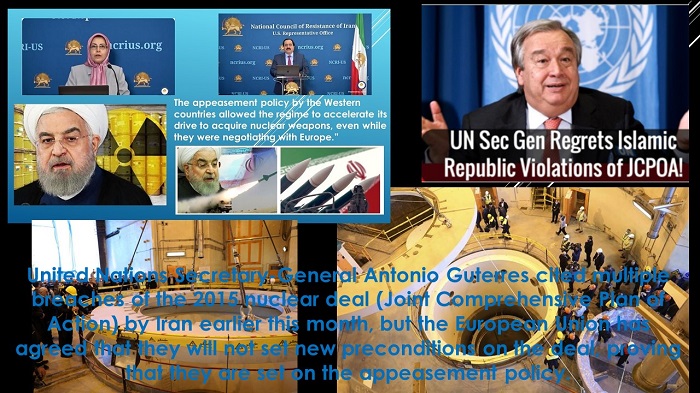
In regards to Iran’s nuclear deal, formerly known as the Joint Comprehensive Plan of Action (JCPOA), Iranian authorities have warned that they are unlikely to reopen discussions in the face of pressure from Western powers.
The regime’s ultimate goal is to secure a nuclear bomb
The regime’s ultimate goal is to secure a nuclear bomb, but in the meantime, it stalls negotiations and uses extortion to put pressure on Western powers. Ebrahim Raisi, the regime’s new president, has stated that his administration intends to pursue the same nuclear extortion strategy as his predecessor.
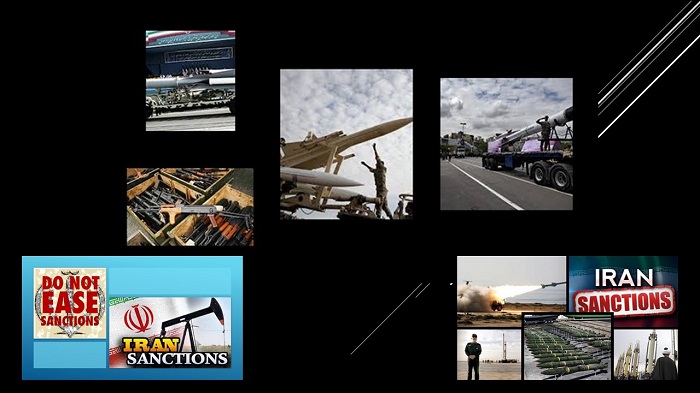
Raisi’s ministers have ties to the notorious IRGC
Within a month after Raisi’s inauguration on August 5, the regime’s parliament had ratified all of his new administration’s ministers. Many of the powerful government jobs were awarded to people he personally selected. Many of the candidates have ties to the notorious Islamic Revolutionary Guard Corps, while others are currently under international sanctions or have arrest orders.
Iran’s opponents described the new cabinet as “the embodiment of four decades of mullahs’ religious dictatorship and terrorism,” implying that they will continue to loot national riches, extend their nuclear program activities, and intensify their terrorism.
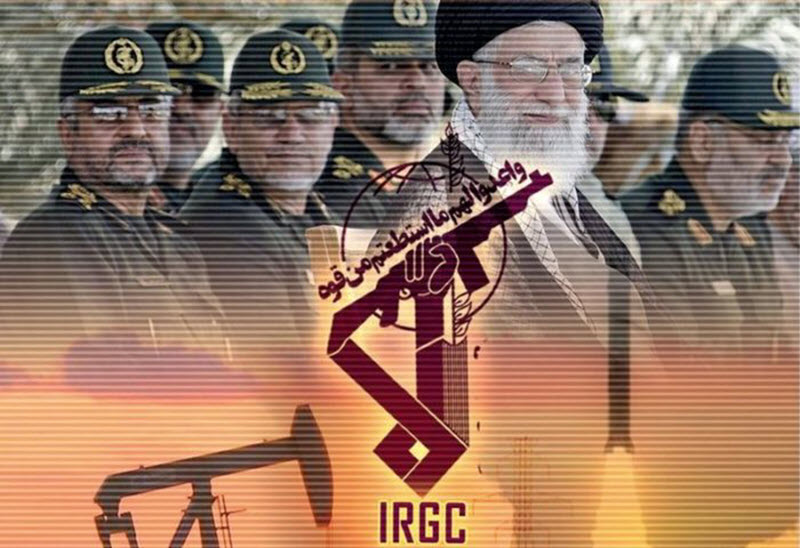
The new head of Iran’s Atomic Energy Organization
With the nomination of Mohammad Eslami as the new head of Iran’s Atomic Energy Organization, the country’s nuclear activities are expected to ramp up.
In 2008, the UN-sanctioned Eslami for “engaging in, directly associating with, or providing support for Iran’s proliferation-sensitive nuclear activities or the development of nuclear weapon delivery systems.”

The killings in 1988
Raisi accepts responsibility for his part in the killings in 1988. In the summer of 1988, he was one of four officials appointed to serve on a ‘death commission’ in Tehran that oversaw the slaughter of 30,000 political detainees, many of whom were members or supporters of the People’s Mujahedin of Iran (PMOI / MEK Iran).
The National Council of Resistance of Iran (NCRI) conducted a virtual meeting last month to discuss the 1988 massacre. Many Western human rights and international law experts, as well as over 1,000 former political prisoners, were among the attendees.
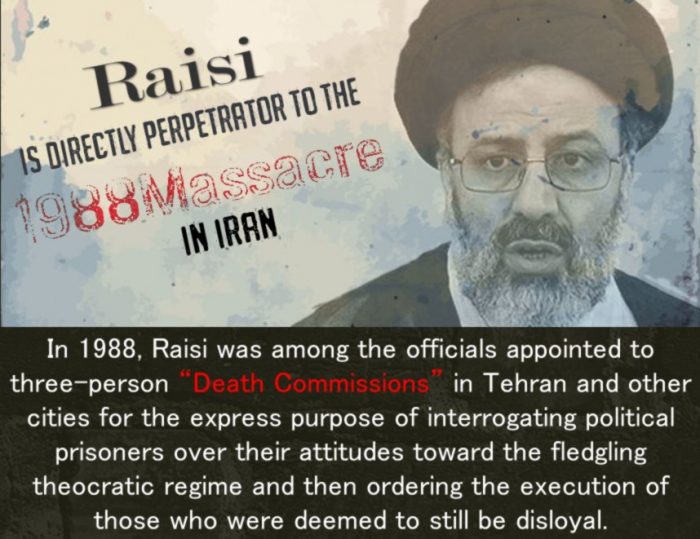
The religious decree that led to the massacre
Those specialists explained in speeches how the religious decree that led to the massacre was plainly designed to lead to the murder of everyone who adhered to a form of Islam that differed from the regime’s theocratic fanaticism.
Geoffrey Robertson, a British human rights barrister who has studied the massacre extensively, noted in his speech that countries that adhere to the Genocide Convention are compelled to take action against perpetrators who are known or suspected of committing genocide.

The issue of impunity that pervades the dictatorship
Since Raisi’s election to the presidency, governments around the world have stayed mute on the issue of impunity that pervades the dictatorship, allowing many regime officials to escape prosecution for crimes against humanity. They have only served to strengthen the regime’s impunity by making concessions to it and focusing too much attention on the non-functional nuclear agreement.
While the 1988 massacre is Raisi’s most enduring legacy, the international community’s tacit support for his administration has ramifications for the full range of hostile actions that are ready to accelerate under his leadership.
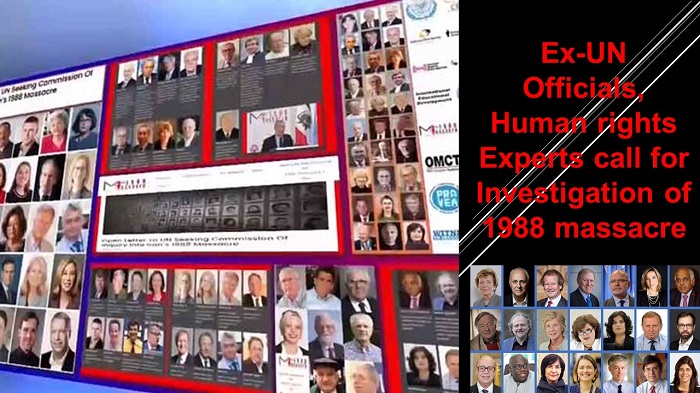
MEK Iran (follow us on Twitter and Facebook)
and People’s Mojahedin Organization of Iran – MEK IRAN – YouTube







